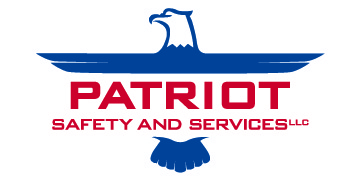When a workplace accident occurs, every minute counts—not just for emergency response, but also for legal and compliance reasons. One of the most critical requirements during this window is post-accident drug testing. Employers in safety-sensitive industries can’t afford to delay or mishandle the process. The consequences of getting post-accident drug testing wrong range from regulatory fines to liability in a lawsuit.
But what exactly does a compliant post-accident drug testing process involve? How soon must testing be completed? Who decides when it’s required? In this blog, we’ll walk through the timing, procedures, and consequences of post-accident drug testing, giving employers the clarity they need to act quickly and confidently when it matters most.
When Is Post-Accident Drug Testing Required?
Post-accident drug testing is typically required when an incident meets certain criteria, such as:
A fatality involving an employee
A serious injury requiring medical treatment
Property damage above a specific dollar threshold
Citations issued by law enforcement
An accident involving a commercial motor vehicle (DOT-regulated)
For employers regulated by the Department of Transportation (DOT), post-accident drug testing rules are clear. FMCSA, FAA, FTA, and other DOT agencies outline exactly when and how post-accident drug testing must be conducted. Non-DOT employers may have different triggers, but OSHA still mandates that drug testing policies be applied consistently and not used as retaliation.
The Importance of Timing in Post-Accident Drug Testing
Timing is everything in post-accident drug testing. Most federal guidelines require that a drug test be conducted as soon as reasonably possible—ideally within hours of the incident.
DOT Time Requirements:
Within 8 hours for alcohol testing
Within 32 hours for drug testing
If a test cannot be administered within these windows, the employer must document the reasons for the delay. Missing the window without proper justification can result in serious compliance violations.
Delays can also impact the reliability of results. The longer you wait to complete a post-accident drug testing procedure, the greater the chance that evidence of substance use may no longer be detectable. That’s why having a rapid-response plan in place is critical.
Proper Procedure: How to Conduct Post-Accident Drug Testing
A valid and defensible post-accident drug testing process requires strict adherence to testing protocols. These include:
Step 1: Determine Eligibility
Use pre-set policy criteria to assess whether the incident qualifies for post-accident drug testing. Make the decision based on facts, not suspicion.
Step 2: Isolate the Employee
Remove the employee from safety-sensitive duties while arranging the test. Maintain confidentiality and avoid making accusatory statements.
Step 3: Initiate Testing Immediately
Call your testing provider to begin post-accident drug testing right away. If you use a mobile provider like Patriot Safety and Services, a certified technician can be dispatched directly to the site.
Step 4: Follow Chain of Custody Protocols
Use a federally approved Custody and Control Form (CCF) and ensure all samples are handled correctly. This is especially important if litigation is a concern.
Step 5: Document Everything
Record the time of the incident, the time of the test, who administered it, and any delays. This documentation is essential in case of audits or investigations.
Mobile Testing: A Game-Changer for Post-Accident Situations
One of the most efficient ways to manage post-accident drug testing is by using a mobile testing provider. Mobile collectors can arrive on-site quickly, avoiding the need to transport employees to clinics or delay testing due to location challenges.
At Patriot Safety and Services, our mobile testing teams are trained to respond rapidly and handle high-stress situations with professionalism. We bring everything needed for proper post-accident drug testing, including breath alcohol testing (BAT), urine collection kits, documentation, and secure transport to certified labs.
With mobile post-accident drug testing, employers can:
- Start the process within minutes of the incident
- Minimize disruption to operations
- Maintain full compliance with DOT or OSHA standards
- Avoid long clinic waits or transport risks
What Happens If You Skip or Delay Post-Accident Drug Testing?
Failing to conduct post-accident drug testing when required can have severe consequences:
- Regulatory Fines and Citations
DOT-regulated employers who skip required testing may face steep penalties and audits. OSHA can also investigate misuse or inconsistent application of post-accident policies.
- Workers’ Comp Disputes
Without a valid post-accident drug testing result, it becomes harder to contest workers’ compensation claims involving substance use.
- Legal Liability
If an injured party or third party files a lawsuit, the lack of proper post-accident drug testing could be used to argue negligence or lack of due diligence.
- Damaged Reputation
Workplace accidents already draw scrutiny—failure to test can damage an organization’s credibility and employee trust.
That’s why having a clear, written, and well-communicated post-accident drug testing policy is essential.
Building a Proactive Testing Plan
To avoid delays and confusion, employers should proactively create a post-accident drug testing plan. Key elements of a strong plan include:
A clear definition of what qualifies for testing
Designated supervisors trained to make testing decisions
Pre-arranged access to a certified testing provider
Documentation procedures and retention protocols
Employee education about the process and expectations
Patriot Safety and Services can help employers build and implement a post-accident drug testing protocol tailored to their industry, workforce, and compliance requirements.
Why Choose Patriot for Post-Accident Drug Testing?
At Patriot Safety and Services, we understand the urgency and sensitivity of post-accident drug testing. Our services are designed to help employers respond quickly, accurately, and within all regulatory guidelines.
We Offer:
24/7 mobile post-accident drug testing
DOT and non-DOT compliant collections
Certified collectors with rapid dispatch capability
Full chain-of-custody support
Digital records and secure lab reporting
Policy development and supervisor training support
We serve companies across Texas and the southeastern U.S. who want fast, compliant, and confidential post-accident drug testing solutions.
Final Thoughts
Workplace accidents are unpredictable, but your response doesn’t have to be. With the right protocols in place, post-accident drug testing becomes a seamless part of your risk management and compliance strategy.
Timing, documentation, and procedural accuracy all matter. Don’t wait until an incident happens to figure out your plan. Work with a trusted provider like Patriot Safety and Services to develop a reliable, responsive post-accident drug testing process that protects your employees, your business, and your reputation.





